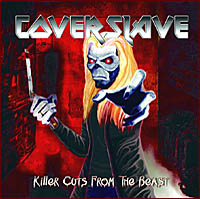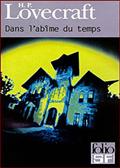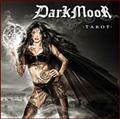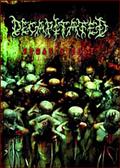COVERSLAVE (FRA) - Killer Cuts From The Beast (2007)

Label : Brennus Music / Socadisc
Sortie du Scud : 2007
Pays : France
Genre : Heavy Metal
Type : Album
Playtime : 6 Titres - 37 Mins
Ne vous y trompez pas, lisez bien le logo, regardez attentivement la pochette, mais non Killer Cuts From The Beast n’est pas le nouvel album d’IRON MAIDEN. Il s’agit de COVERSLAVE et dans COVERSLAVE il y a « Cover » et donc oui vous l’avez tous compris, il s’agit d’un tribute band de la vierge de Fer, mais pas n’importe lequel, c’est un groupe français venant de Normandie !
Alors cocorico ou ouille ouille ouille ???? Déjà le problème avec les groupes de reprises, c’est que soit, ils tentent de copier l’original et là c’est totalement inutile, soit ils massacrent le tout et il ne reste que le titre de la chanson pour savoir qu’il s’agit d’une reprise. Ce Killer Cuts From The Beast est composé de 6 titres d’IRON MAIDEN piochés dans des albums des différentes périodes du groupe. On a le droit à « Killers » et « Phatom Of the Opera » pour l’ère Di Anno, « Powerslave », « Caught somewhere in Time », « Brave New World » et « Be quick or Be Dead » pour l’ère Dickinson. Aucun titre provenant des albums enregistrés avec Blaze Bayley ne se retrouve sur cet album de reprises.
Ces six reprises sont proches des originales, à savoir qu’elles se contentent de reproduire avec rigueur les titres initiaux. Cela se confirme tant au niveau de la performance technique que du son. On peut saluer le travail du chanteur Stéphane Graziani qui excelle dans l’imitation de Paul Di Anno, mais qui éprouve quelques légères difficultés lorsqu’il s’agit des titres du grand Bruce (« Caught Somewhere In Time »). Le seul fait que l’on peut lui reprocher est qu’il tente trop d’imiter ces chanteurs et d’atteindre leurs performances vocales à défaut de laisser libre court à son interprétation personnelle. Musicalement, on sent que COVERSLAVE aime MAIDEN et que les musicos ont un bagage technique assez élevé. Ce sont des instrumentalistes qui prennent plaisir à jouer ensemble les morceaux des anglais, cela s’entend surtout sur le « Phantom Of The Opera ».
Ensuite on peut se poser une question : que les groupes se fassent plaisir en incluant une reprise d’un titre à la fin d’un album ou d’un concert en y ajoutant leur personnalité ok, mais quel est l’intérêt de proposer un album entier de reprises le plus proche possible de l’original ? C’est proposer une compilation de seconde zone… à chacun son avis.
Il est donc évident que ce type d’album s’adresse aux fans les plus farouches de IRON MAIDEN, mais ceux-ci ont tellement l’embarras du choix tant le groupe de Steve Haris fait l’objet de nombreuses reprises…
Ajouté : Vendredi 16 Novembre 2007
Chroniqueur : Warloghe
Score :   
Lien en relation: Coverslave Website
Hits: 17615
|














